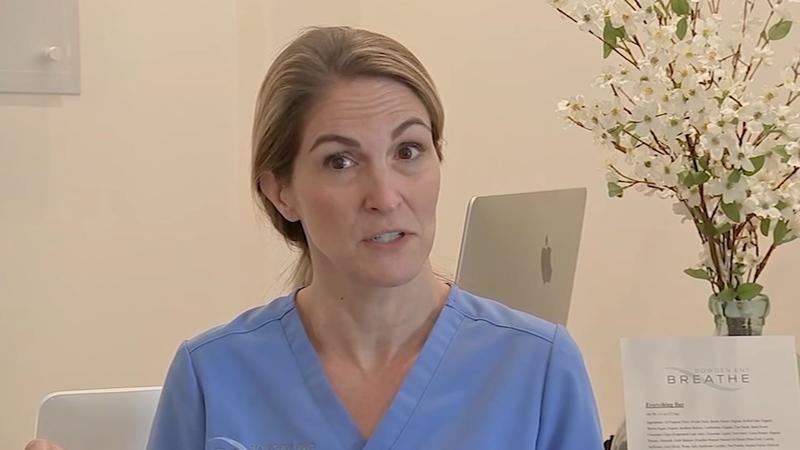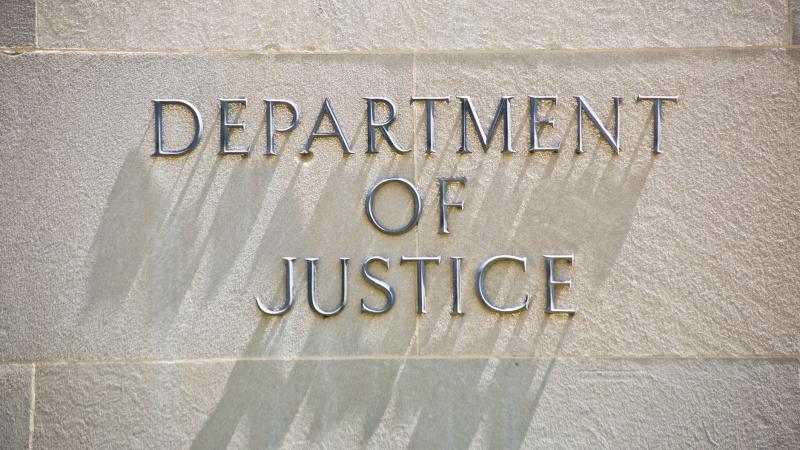Death by a thousand cuts? CDC advisers plot sweeping COVID vax review as RFK Jr. yanks emergency OK
"For some reason, there is a misconception that harms of vaccines primarily show up shortly after vaccination," says chair of new working group and MIT professor Retsef Levi, known for vaccine-heart problem study.
In six months as secretary of health and human services, Robert F. Kennedy Jr. has frustrated vocal opponents of COVID-19 vaccines including Rep. Thomas Massie by nibbling around the edges of official recommendations, clinical trials and approval terms, rather than banning the shots outright amid growing evidence of severe side effects and increased infection risks.
The longtime vaccine skeptic may be pursuing a strategy of death by a thousand cuts rather than one mass execution, however, setting the stage for a wholesale reckoning of the jabs' initial trials, emergency use authorizations and mandates alongside parallel litigation.
Kennedy rescinded the Emergency Use Authorizations (EU) for COVID vaccines Wednesday, nearly five years after the same president's HHS issued them, saying they were "used to justify broad mandates on the general public during the Biden administration." (The Democratic president's top vaccine regulators also accused agency leaders of rushing full approval to enable a White House mandate.)
Food and Drug Administration Commissioner Marty Makary announced Friday his agency would start publishing real-time data from the FDA's Adverse Events Reporting System, a broader side-effect tracker than the Vaccine Adverse Events Reporting System the FDA co-manages with the Centers for Disease Control and Prevention.
The CDC's reconstituted Advisory Committee on Immunization Practices, whose prior membership Kennedy fired en masse for alleged conflicts of interest and lax recommendation standards a day after a vocal critic asked why they were still there, launched a working group to review COVID vaccines, HHS confirmed to Reuters this week.
Physician-turned-investigative journalist Maryanne Demasi broke the news a week earlier that it would be led by ACIP member and MIT professor Retsef Levi, whose research found COVID vaccines were "significantly associated" with emergency heart problems in Israel, and include ACIP member Robert Malone, the mRNA pioneer-turned-critic.
It wouldn't be the first federal skepticism of COVID vaccine composition, with the Biden administration's FDA covertly grilling Pfizer in its full-approval review about potential contaminants introduced in pharmaceutical manufacturing and "serious risks for myocarditis and pericarditis" that increased "in males under 30 years of age."
"Levi and his team are now tasked with probing long-term outcomes, mapping vaccine policies around the world, and assessing, to what extent, years of official reassurances about safety and efficacy hold up against emerging data," Demasi wrote.
He walked Demasi through the workgroup's terms of reference, which show its planned reviews include "persistence of the spike protein, mRNA, and lipid nanoparticles … potential impurities (e.g., DNA contamination and endotoxins)" and "impact of repeated boosting immunization," such as the so-called antibody class switch and immune imprinting.
"For some reason, there is a misconception that harms of vaccines primarily show up shortly after vaccination," Levi told Demasi. "But remember that the goal of vaccination is to drive a long-term impact on the immune system, so why don’t we acknowledge that it may also cause long-term harm?"
The ACIP review was cited by once-censored British cardiologist and public health activist Aseem Malhotra in a Daily Beast interview, in which he predicted the Trump administration will start the process of pulling COVID vaccines altogether "within months."
Deeming Malhotra "one of Robert F. Kennedy Jr.’s closest associates," the liberal publication said Malhotra claims many people closest to the secretary told Kennedy they "cannot understand" why COVID vaccines remain on the market in light of a 2022 paper by research luminaries on "serious adverse events of special interest."
The prediction is at odds with Kennedy's own summary of his accomplishments Wednesday, one of which was "to keep vaccines available to people who want them, especially the vulnerable," through marketing authorization for Moderna, Pfizer and Novavax vaccines "for all patients who choose them after consulting with their doctors."
The sudden disputed departure Wednesday of CDC Director Susan Monarez less than a month after her swearing-in, a period in which vaccine regulator Vinay Prasad also left following criticism from pharma backers and a conservative influencer but returned with the backing of Makary and Kennedy, suggests an ongoing tug-of-war between old and new guard.
The Washington Post reported, citing "two people with knowledge" of her conversations with Kennedy and other officials, that the secretary had pressed the longtime government scientist to resign when Monarez wouldn't commit to rescinding some approvals for COVID vaccines.
Monarez went to pharma-favorite Sen. Bill Cassidy, R-La., who "privately pushed back" on Kennedy, at which point administration officials told her she could resign or be fired, the Post said, citing three people with knowledge. HHS publicly said Monarez is "no longer director."
Monarez, through her attorney, Abbe Lowell, later said that she neither resigned nor was notified that she had been fired.
Lawsuits by government employees fired for refusing COVID vaccinations could help blunt the threat of mandates returning under a future administration, though mandates reportedly never ended for some medical colleges.
A fired professor sued Minnesota Gov. Tim Walz (D) and Lake Superior College for refusing to exempt him from the mandate on the basis of his natural immunity and the vaccine's inability to stop transmission, appearing before a federal judge this month to oppose the motion to dismiss.
Fired Washington State University football coach Nick Rolovich filed his opening brief at the 9th U.S. Circuit Court of Appeals in June, arguing a "reasonable jury could find that WSU could have accommodated Rolovich's religious objection without undue hardship" and the trial court wrongly granted summary judgment to WSU on other claims.
Rolovich, now a senior offensive assistant at the University of California Berkeley, got an assist from Trump's Justice Department the following week. It told the 9th Circuit the lower court was wrong that "the record fails to include evidence based on which a reasonable fact finder could conclude that Rolovich had a sincere religious basis" for exemption.
The Facts Inside Our Reporter's Notebook
Videos
Links
- frustrated vocal opponents of COVID-19 vaccines
- Rep. Thomas Massie
- official recommendations
- clinical trial
- approval terms
- severe side effects
- increased infection risks
- Kennedy rescinded the EUAs
- top vaccine regulators also accused agency leaders
- Marty Makary announced Friday
- prior membership Kennedy fired en masse
- vocal critic asked why they were still there
- HHS confirmed to Reuters
- Maryanne Demasi broke the news
- ACIP member
- COVID vaccines were "significantly associated"
- Biden administration's FDA covertly grilling Pfizer
- potential contaminants introduced in pharmaceutical manufacturing
- workgroup's terms of reference
- so-called antibody class switch
- immune imprinting
- once-censored British cardiologist
- public health activist Aseem Malhotra
- Daily Beast
- 2022 paper
- sudden departure
- vaccine regulator Vinay Prasad also left
- returned with the backing of Makary and Kennedy
- The Washington Post
- pharma-favorite Sen. Bill Cassidy
- HHS publicly said
- mandates reportedly never ended for some medical colleges
- A fired professor sued Minnesota Gov. Tim Walz
- appearing before a federal judge this month
- Nick Rolovich filed his opening brief
- assist from Trump's Justice Department















